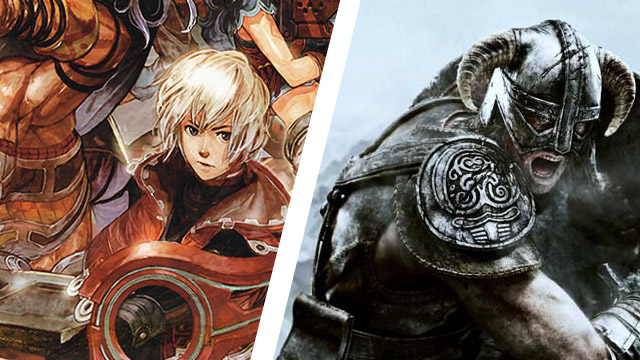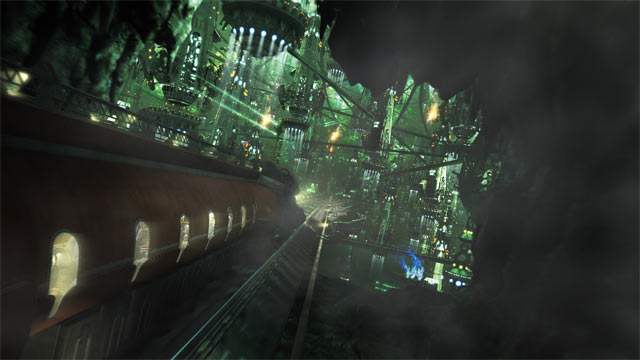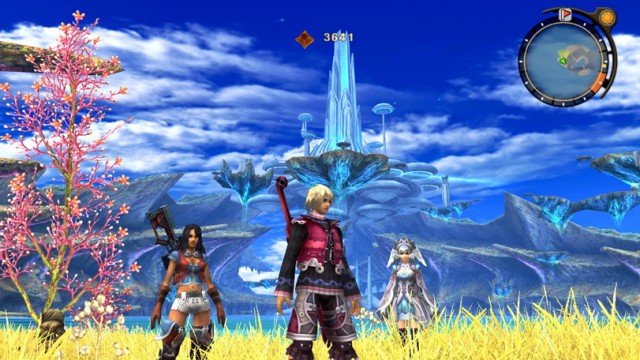
Side by Side
Despite the cultural distinctive of West and East, clear best practices have developed in recent years in role playing, cutting across regions and cultures. For example, both Western and Eastern developers have sought to modernize role playing away from some of the silly tortures of years past. In doing so, they have struggled to walk the tightrope between accessibility and depth, satisfying the need for a deep experience without turning the experience into the infamy known as “RPG lite.”
This is no simple exercise, and it is far too easy for even good developers to destroy depth when the promise of an expanded audience (and, by extension, expanded profits) dangles before them like fruit from Eden’s forbidden tree. BioWare is a cautionary tale in this fall from grace: once the birthplace of such unforgettable games as Star Wars: Knights of the Old Republic and Mass Effect, the company has essentially neutered its core role playing appeal in recent installments. For example, the two sequels to Mass Effect stripped out some of the best elements of role playing experience that made the original so good, while another BioWare franchise, Dragon Age, went from a full RPG experience in the first game to a watered-down action button-masher in the sequel. At present there seems to be no interest in turning back.

Equally disappointing are the fortunes of Japan’s most famous role playing franchise. The Final Fantasy series, despite profound commercial success, has turned decidedly away from the hardcore in recent years. Glossy and picturesque, Final Fantasy XIII and (to a lesser extent) Final Fantasy XIII-2 are a saccharine, senseless departure from a franchise that used to be dependable when it came to deep experiences. Experience points, leveling up, equipment, and inventory have all been so “streamlined” (or butchered, depending on your point of view) that Final Fantasy now feels like an adventure game made for idiots. Square-Enix no doubt sold XIII and XIII-2 in buckets, but it did so with games that felt somehow empty and unsatisfying, thanks to games that were so light on RPG mechanics that they felt more like adventure games than real role playing.
Cast against the light of BioWare or Square-Enix, I cannot help but be impressed at the way Monolith and Bethesda have managed to walk the knife’s edge of depth and accessibility and do it right. Skyrim, for example, stripped out the extraneous stat-building of its Elder Scrolls forebears while retaining enough key stats and perks to keep the game an honest RPG, even developing a neat system that allows players to test out class options before being locked in. Statistics still matter, as does equipment, and the permutations in those two categories alone are diverse enough to justify playing through a second time with a new character.
Xenoblade, meanwhile, marked the latest stage in the evolution of Monolith. Once a developer of the weirdly niche Xenosaga trilogy, the company has gradually found a way to fashion a more broad appealing game while avoiding the Final Fantasy trap of jettisoning the fundamentals. Unlike certain other Nintendo RPG franchises, leveling, stats, and equipment are all fully a part of the experience (along with some clever relationship mechanics), mixed together with MMO-style exploration and combat that feels at once both immersive and simple on a JRPG.

At the same time, both games firmly reject the sadism that have made some modern RPG franchises feel archaic. A handful of modern games still think random battles, impossibly disparate save points, and other tools of torture constitute hardcore gaming. I don’t doubt that a few purists out there still embrace the pain, but I tend to think that a game that has lot of interesting things to do is preferable to one that wastes your time with senseless backtracking or an hour of play wasted because someone thought it was fun to put my game at the mercy of a random power outage.
Looking Forward
In my view Bethesda and Monolith are two of the more exciting RPG developers out there, especially given the direction some former RPG stalwarts have gone. Yet even these two companies have work to do. Bethesda has a knack for creating the massive world but it has also created a reputation of putting unfinished products to market, and its move into an MMO makes me worry that it will have less resources to allocate to good single-player games. Monolith Soft apparently has a new heavyweight brewing for Wii U, but given that it also seems to have multiplayer, I hope online development doesn’t undermine the winning formula of narrative, scope, and gameplay that came together so well on Xenoblade.
But in an era when “stupid games” are all the rage and other major developers are doing away with deep experiences, I’ll take my epics any way I can get them.
Pages: 1 2




 ShareThis
ShareThis






Xenoblade just showed up on the Wii U eShop, and claims that it supports the Wii U gamepad as a controller (not just a display). Can anyone here verify whether that’s true? Not that I need to buy this game a third time, but still. :^)
I’m pretty sure (although not positive) that the answer is yes for any Wii game re-released on the eShop.